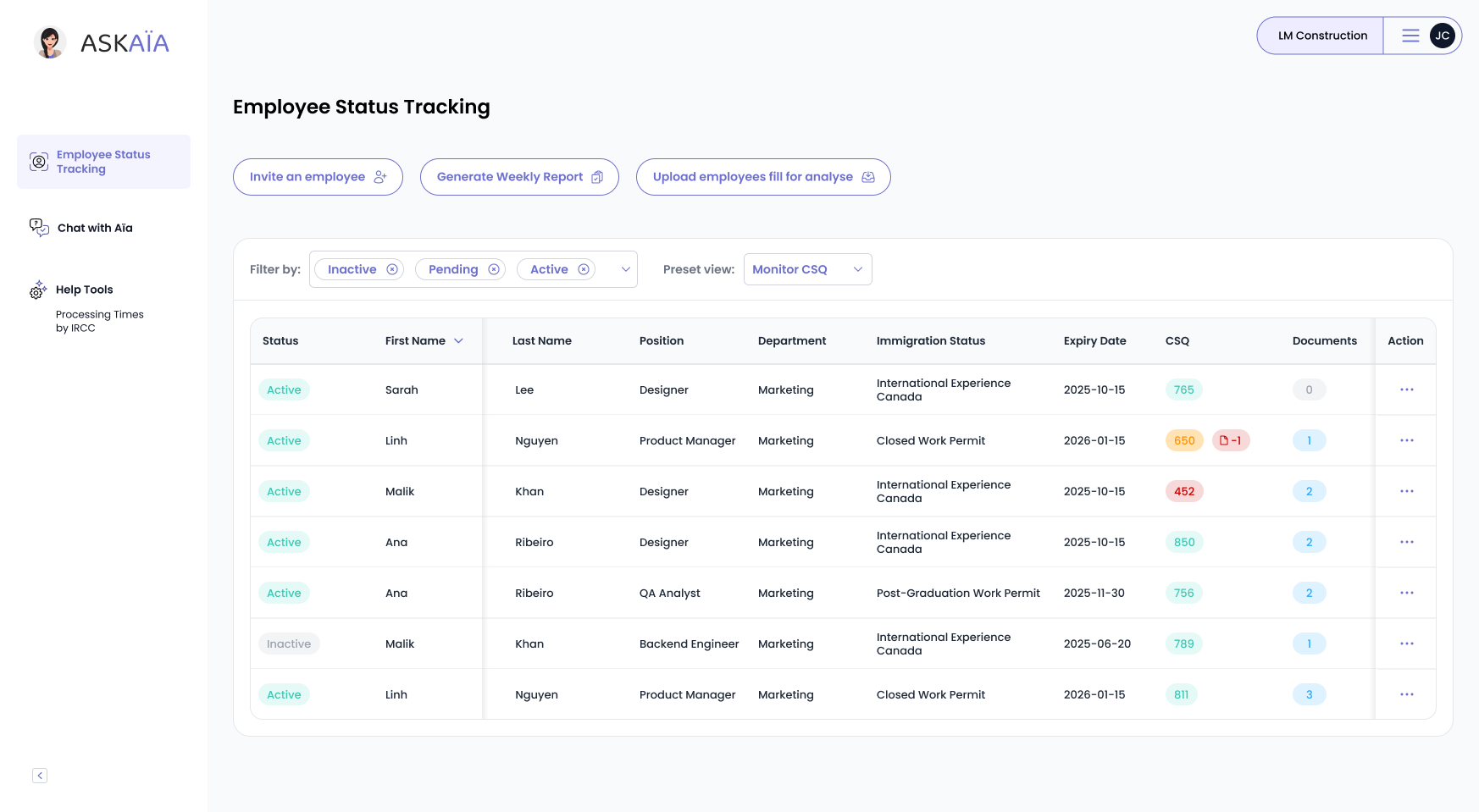Change Jobs Faster: Canada’s New Policy Lets TFWs Switch Employers

Temporary foreign workers (TFWs) often face delays when switching employers in Canada. A new IRCC policy now allows eligible workers to start new jobs while waiting for their permit approval.
This article explains who qualifies and how the process works. Canada’s evolving policy helps reduce employment gaps for TFWs, giving both workers and employers more flexibility. If you're a foreign worker considering a job change in 2025, this update may directly affect your options.
Why Canada Allows TFWs to Change Employers While Waiting
Historically, TFWs with employer-specific permits had to wait weeks for IRCC decisions before starting new jobs. The government recognized this created unnecessary employment gaps, financial hardship, and inefficiencies in the labour market. This public policy, in effect since 2020 and updated in 2025, ensures that qualified TFWs already in Canada can change jobs faster while their new work permit application is being processed.
How the 2025 Temporary Public Policy Works
Under section 25.2 of the Immigration and Refugee Protection Act (IRPA), IRCC grants a temporary exemption: eligible TFWs may begin working in their new role immediately after submitting a valid work permit application and requesting interim authorization to work.
This allows employers to fill urgent labour needs and enables workers to maintain financial stability, even if processing times remain long for work permit applications.
Who Can Benefit From This Policy
This policy applies to several common scenarios:
- Laid off workers who find a new job.
- Employees seeking better compensation or career growth.
- Workers changing roles within the same company.
- Workplace conflict or incompatibility.
- Those moving from one employer to another under the TFWP or International Mobility Program.
Eligibility Requirements Explained
To qualify, the TFW must:
- Be physically present in Canada.
- Hold valid temporary resident status.
- Have submitted a new or renewal work permit application for the new job.
- Request interim authorization through IRCC’s online portal or alternate format.
- Have a job offer meeting TFWP or IMP conditions. This means:
- Under the Temporary Foreign Worker Program (TFWP), the employer may need a valid Labour Market Impact Assessment (LMIA) confirming that no Canadian or permanent resident is available for the job.
- Under the International Mobility Program (IMP): The job offer may be LMIA-exempt if it falls under categories like intra-company transfers, NAFTA/USMCA professionals, open work permits for spouses, or special exemptions for vulnerable workers.
In both cases, the job offer must meet IRCC’s program requirements to ensure the worker is authorized to take the new position.
Workers under "maintained status" may also apply if their new employment differs from their previous permit.
Key Legal Exemptions
Normally, Temporary Foreign Workers (TFWs) in Canada cannot start working for a new employer until Immigration, Refugees and Citizenship Canada (IRCC) fully approves their new work permit. This often caused long waiting periods without income.
Under the 2025 temporary public policy, IRCC allows exemptions to certain legal rules so that eligible workers can start their new job while their permit application is still being processed:
- Paragraph 183(1)(b): authorization to work. Normally, workers are not allowed to work without prior authorization. This exemption allows them to start working for the new employer once they submit their work permit application and request interim authorization.
- Subparagraph 185(1)(b): employer and occupation conditions. Typically, workers are restricted to one employer, one position, and specific job duties. This exemption temporarily removes those restrictions, allowing the worker to change employers and positions.
- Section 196: need for valid work permit before starting. Usually, a valid work permit must be issued before starting any work. This exemption allows eligible workers to begin employment while their new application is still in process.
These exemptions remain valid until IRCC makes a decision or the application is withdrawn.
Why This Policy Matters for Canada's Economy
This policy helps Canada make better use of skilled foreign workers who are already in the country. Instead of forcing employers to wait for new international hires, companies can quickly fill job vacancies with experienced workers who are familiar with Canadian work standards.
With current processing times averaging 234 days, long waiting periods previously caused labour shortages, especially in critical sectors like healthcare, construction, agriculture, and services. Allowing temporary foreign workers to change employers faster reduces productivity losses, prevents income gaps for workers, supports business continuity, and strengthens Canada’s competitiveness.
What This Means for TFWs and Employers
This policy creates important advantages for both workers and employers.
For example, a caregiver whose employer closes the business unexpectedly can quickly accept a new job offer without waiting months for IRCC approval. Similarly, a construction worker who receives a better-paying offer from another company can transition immediately while maintaining legal work status.
For workers:
- No forced employment gap while waiting for IRCC decisions.
- Greater flexibility to pursue better employment.
- Reduced financial stress during job transitions.
For employers:
- Faster onboarding of candidates already in Canada.
- Reduces hiring delays caused by work permit processing times.
- Allows businesses to respond quickly to changing workforce needs.
- This policy supports better workforce matching while protecting workers' legal status, income continuity, and overall economic stability.
Policy Effective Date and Expiration
This public policy revokes and replaces the earlier Temporary Public Policy issued during the COVID-19 pandemic, which was signed on May 6, 2020. The current version of the policy takes effect 12 weeks after the signing date and remains in force until it is revoked by the Minister of Immigration, Refugees and Citizenship Canada. As of 2025, it is still active and applicable.
Future Outlook
This policy continues to support Canada’s labour needs while allowing flexibility for temporary foreign workers. It remains in effect indefinitely, unless revoked by the Minister of Immigration. It remains in effect indefinitely, unless revoked by the Minister of Immigration.
TFWs and employers should monitor IRCC announcements, as future adjustments may occur based on market conditions.
Navigating Canada’s changing work permit rules can be complex. Not sure how these policies apply to your situation? Take a free assessment with AskAïa to explore your best immigration options.

Let’s get your demo started
Book a demo
You May Also Like
These Related Stories

Act Now: Canada Widens Low-Wage LMIA Ban Across 26 CMAs
At a Glance " \n Effective July 11, 2025, low-wage LMIA applications are banned in 26 urban regions, including Toronto, Vancouver, Calgary, and Montre …

Why Skilled Migrants Prefer Canada Over the U.S. in 2025
Faced with mounting delays and complex visa hurdles in the U.S., a growing number of skilled professionals are turning their eyes north. Canada’s stre …

New Express Entry Stream for Teachers Launches in Canada
Canada just invited 1,000 educators—and it’s only the beginning. On May 1, 2025, IRCC launched its first category-based draw for education professiona …